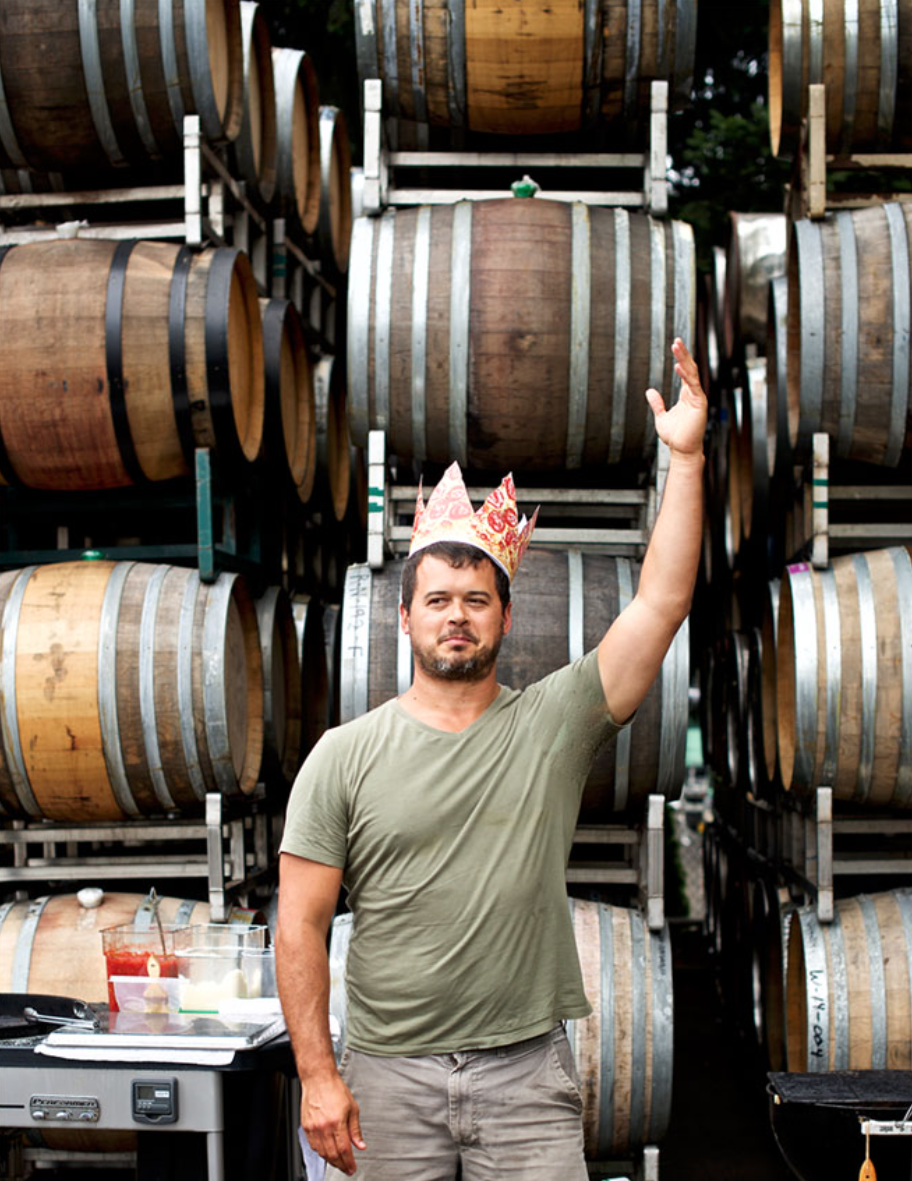From med school dreams to putting Oregon pinot noir in a can—if that’s not the path less taken, we’re not sure what would be. Either way, we are glad he chose the road he did. On today’s Field Notes, and in our latest PDP—Pinkiesdown podcast*—we sit down for a special interview with our founder, Ryan Harms. We talk shop on the beginnings of our little wine company and how it came to be. How some things have changed dramatically, yet some goals have stayed much the same. A bit of what life coming out of a global pandemic means for him as a father, husband, and business owner. And what “blue skies” we have to look forward to.
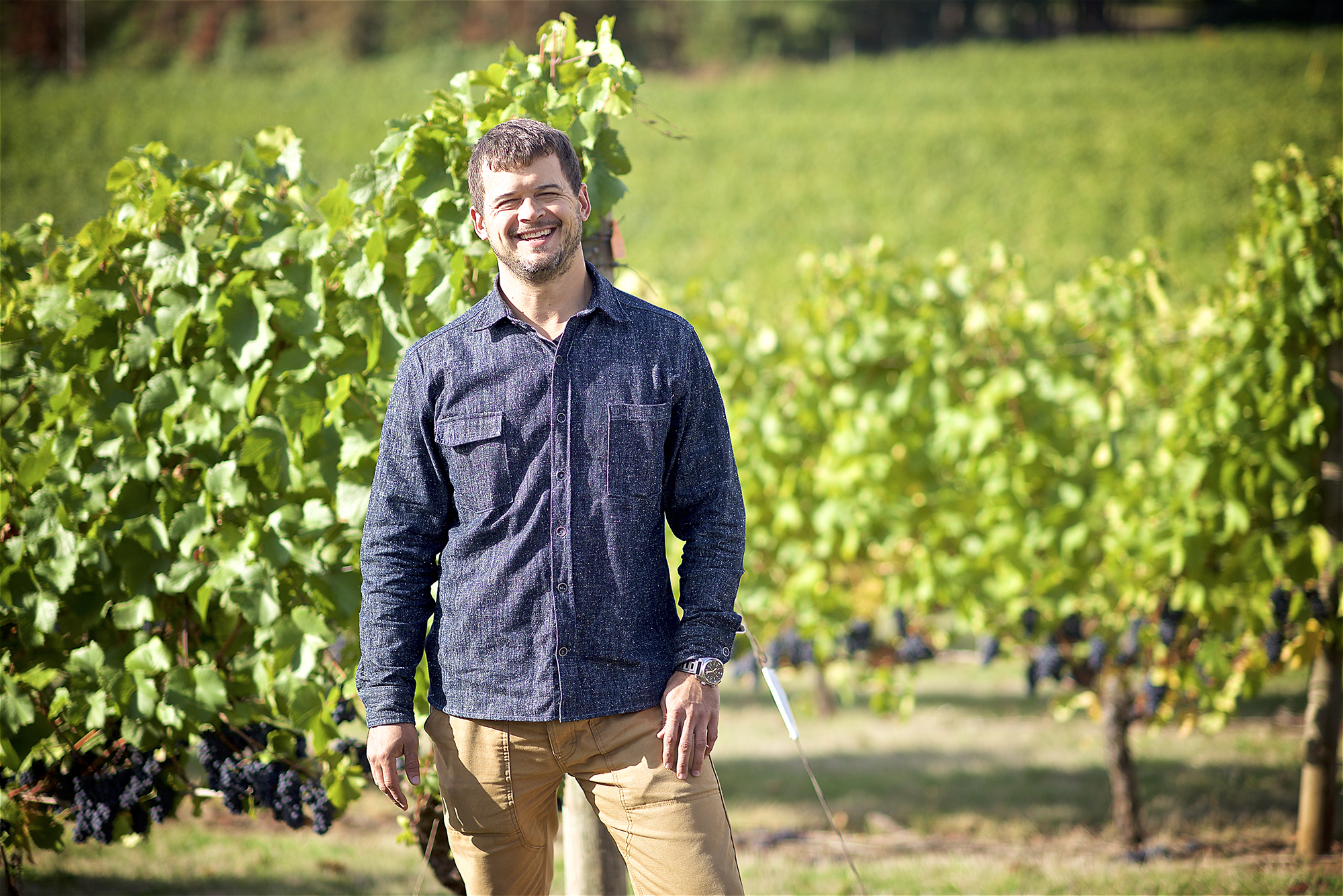
PDP- Hello Ryan, welcome. It just so happens our interview day of is May 25th, National Wine Day. Do you have one, or maybe multiple picks for this summer of 2021?
RH- I have to say that in the summer months ever since we started producing Rose Bubbles in a can that has become one of my go-to, getting out, doing yard work, spending time—usually not operating a lawnmower—but I’ve been known to have it in my hand as I’m pushing the lawnmower around the yard. That has become a go-to in the summer months. Then I always am a fan of some of our can cocktails, or I mess around making my own at home. There’s nothing like a little fruit in some wine and maybe a little carbonation.
PDP – I like that. Maybe we will have to release a few more cocktail recipes for our fans out there. I know that you and I are both fans of a nice Negroni every once in a while.
RH – You know, there’s nothing wrong with a little Negroni. It keeps everything fresh and lively in the summer months.
PDP – Speaking of (hopefully) entering a season of openness, health, and prosperity, let’s go back in time a little bit. The new normal, that we’re now sitting in, how has this last year pushed you further as an owner of our company, father, husband, trying to find balance through the waves the pandemic brought us?
RH – Oh man, there’s a lot there. I think if I go back and think about everything that’s gone on over the last year, on the one hand being home, I feel very fortunate that we’ve been able to keep everyone safe and healthy. Being able to be home with my kids it became apparent to me that there was all this time that typically as a parent I wouldn’t get to spend with my kids. Now, by all of us being home, having lunch with them almost every day, spending more time with my wife, those were all absolute plusses in what otherwise was obviously, at times, a little bit of a scary and stressful situation. In terms of the business, we proved that we put a good plan together. We took care of our people and made sure that we did the best we could to keep everyone safe. Finding our way through COVID we probably realized that we were more resilient as an organization than I might have thought we were. And we also really proved to ourselves that working remotely was incredibly successful. That will be a great thing for us to continue to think about going forward as an organization. How we can potentially create more flexibility for our staff in terms of where they want to work. It is cool to have this kind of forced experiment if you will, it really challenged a lot of people’s thinking around remote work, versus being in the office.
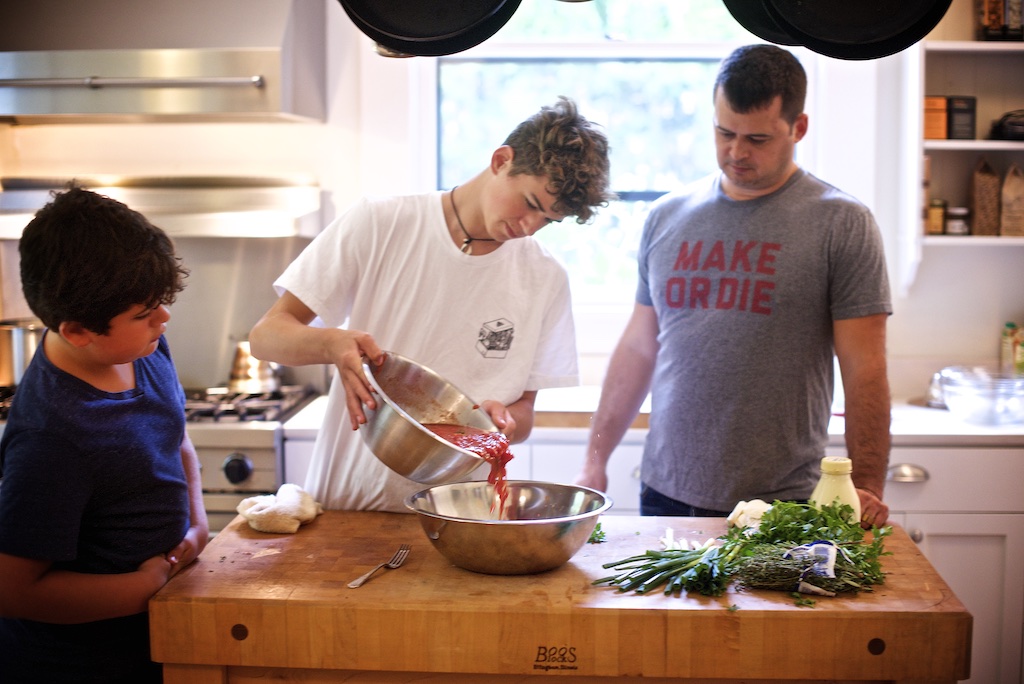
PDP – As someone who has been in a period of work-life where it was tangible or nothing in my previous part of the wine industry, you either had to be on-site or you weren’t. Then translating over to not quite in office but a little bit of that environment and still being able to do everything you were already going to do, and sometimes even more efficiently. There’s a lot of adjustments made that I think will be beneficial moving forward.
RH – Yeah, because we are growing and producing a product, and we’re a manufacturing organization at a certain level we’re not able to all be home. For the staff that needed to come into the winery, and the staff at the packaging facility, we were able to create a safe workplace for them to all come into during COVID, to make sure that we could continue as a business and to operate. I think for us it was unique, not everyone’s role allowed them to work from home. And yet, I think we’ve learned a lot about coming back to business resilience in what’s made us resilient. I feel like now as a company we’ve been in business since 2005 this is the second major economic downturn that we’ve been through. Now we can say we survived a global pandemic and feel really good today about this organization and its strength.
PDP – My interview day I remember asking you about, not just the wine industry, but the canned-wine industry. I remember your answer was something along the lines of “yeah man, lots of blue skies left” like, don’t worry. Every time something reared its head, I would think alright, we’ll figure it out. Blue skies indeed.
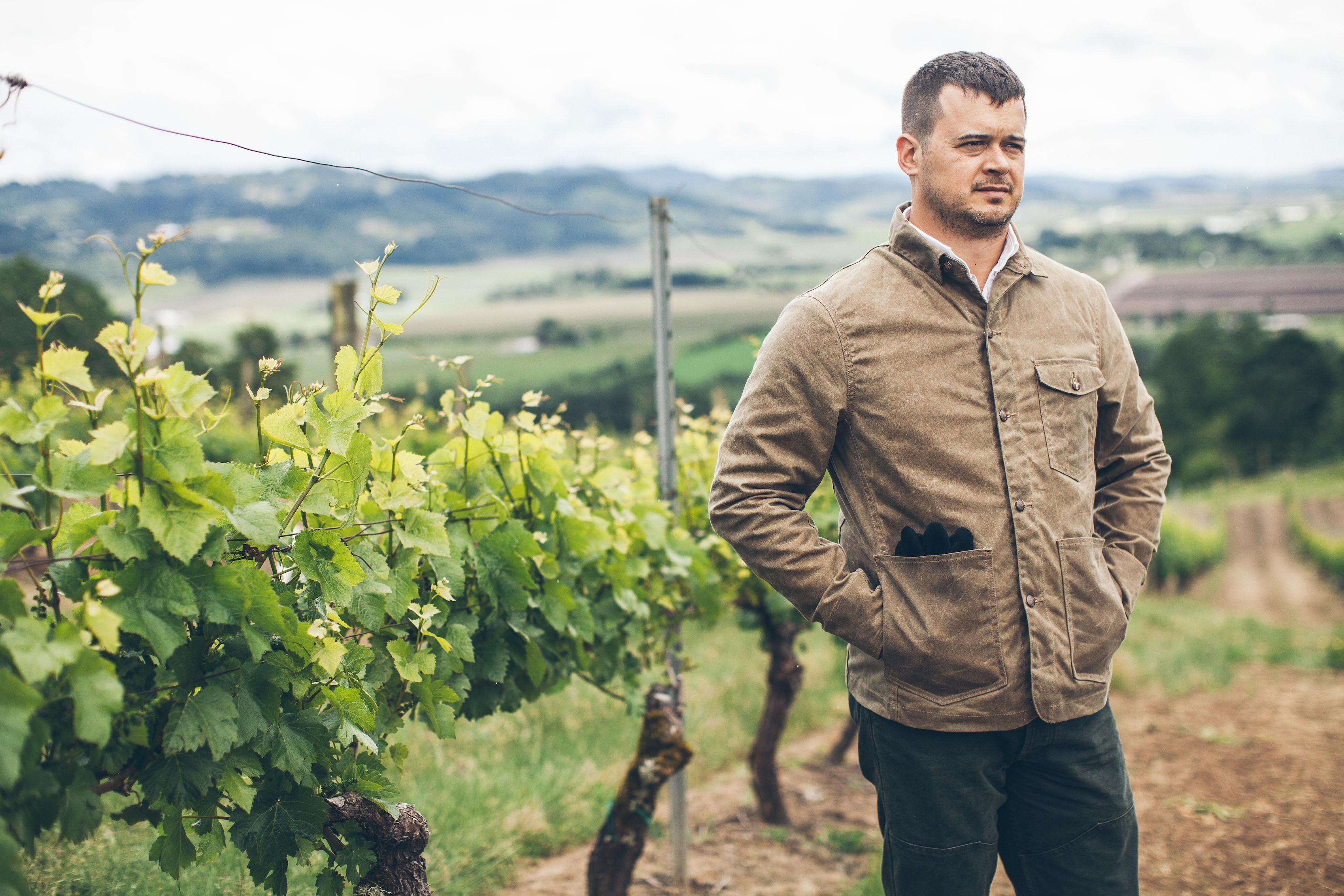
PDP – So, going further back in time, back to pre-Instagram times. Definitely pre-Tok-Tok—maybe Myspace was around doing its thing, some AOL. I want to talk about Mr. Ryan Harms, Pre- Union. Your first winery/vineyard job. And, if you could describe the deciding lightbulb, over-the-head-moment when you decided “OK, Wine. Here we go”.
RH – Yeah, so go back to 1997. When I went into college, I wanted to be a doctor, and so everything that I was thinking about coursework was all structured around that. Then I realized that that wasn’t in the cards, and I was going to need to kind of rethink where I was going career-wise. Now looking back it’s pretty funny, you know, freshman/sophomore in college, you think you’d really have that all sorted out. I was reassessing things that were interesting to me and what I wanted to explore. Wine had been something I was always a little interested in. My girlfriend’s family at the time was super into wine. Being around their household I was exposed to it. So, I reached out to Rex Hill, and Lynn Penner-Ash was the winemaker there at the time. She gave me a harvest job, and an opportunity to come to Oregon. I’d never been here, just a kid from New York at the time. I came out here and worked harvest in 1997. It rained, I think pretty much from September 15th on…it was not one of the high-quality vintages. It was stormy, yeah, it was a tough vintage. I absolutely loved it. Loved every minute of it. I met some awesome people and wanted to get back here as soon as I could. I graduated college and Josh Bergström from Bergström wines was also working his first vintage. His family had just purchased some land in Dundee. Move forward a couple of years, they were developing and just getting their winery off the ground. He gave me an opportunity to come back to work with him. That was my first full-time job in the wine business after working harvest in 97.
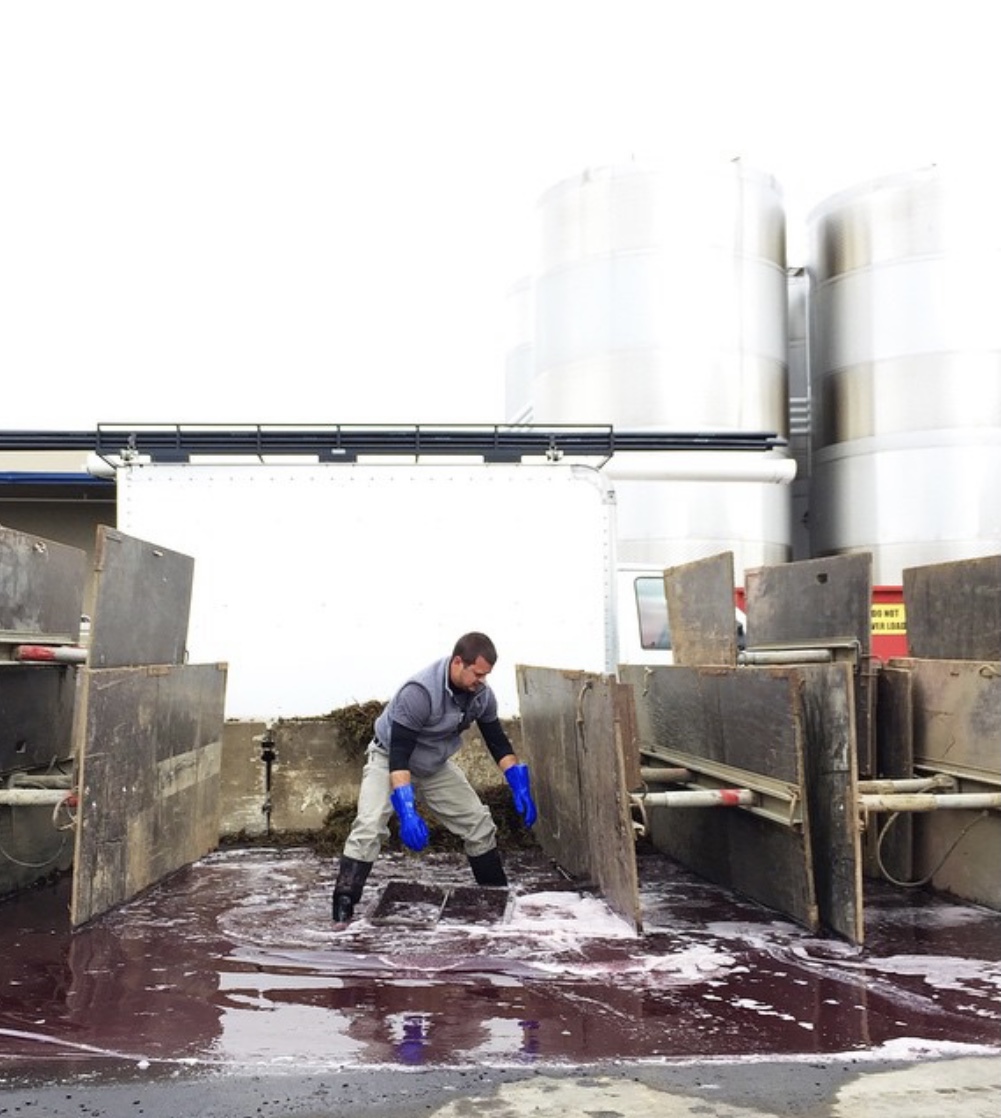
PDP – That’s awesome. That’s around that time when people were still utilizing whatever equipment they could to get the job done. Do you remember using any old basket presses?
RH – At Rex Hill there wasn’t a basket press, we had an old Willmes press. It was super manual to run, and probably scary as can be to think about the way in which it functioned and working around it. But it was a total kick-in-the-pants to run.
PDP- Well, as we’re taking this trip back in time, and through all the things that we’ve dealt with in the last year, let’s flash forward, but not all the way to the present. I’ve been curious, and I know a few of our other folks here at Union have been curious to get the story straight. For all the folks out there that enjoy our Underwood canned wines, where, if you can recall, was the very first Underwood can cracked?
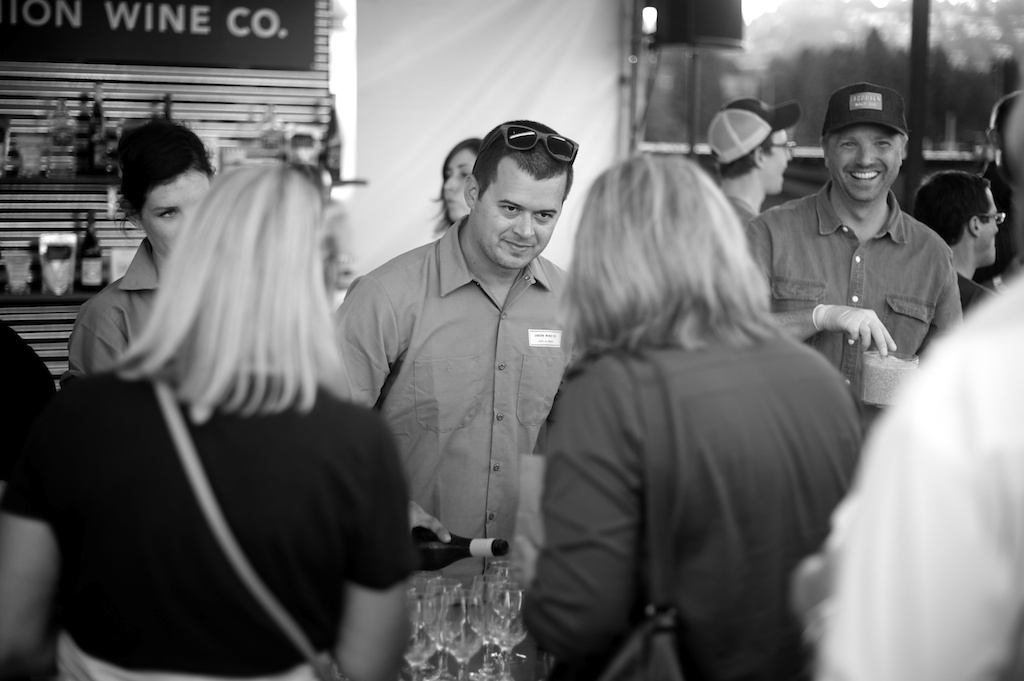
RH – Well, I can say my first can that I cracked was somewhere in August of 2013. We canned the first trial run of pinot gris and pinot noir that was all being done for the upcoming Feast event in September of that year. I don’t know where I was, not at the winery when it happened… I was going camping that weekend and I stopped at the winery really quick. Grabbed some cans and went out to the Oregon coast. I had two cans that evening, absolutely loved it. Then I couldn’t understand why I could barely move after that and realizing that I basically just consumed a bottle of wine. So, it’s a great moment on a couple of different levels. So excited to finally have wine in a can that was our product and was super excited about that. And then this kind of this epiphany that yeah, you just drank a bottle of wine.
PDP – I love that. The first story, the story from you is almost verbatim to a lot of folk’s same enjoyment of those cans. Knowing firsthand being on the road promoting the wines and sharing them with the good folks out there, that’s one of the parts of the double-edged sword of delicious wine.
PDP – In general the idea of Union Wine Co. and the credo which our podcasts is aptly named for—“pinkies down podcast”—what is #pinkiesdown? And what is the genesis story behind that?
RH – Sure. The decision to get can wine out into the public and “pinkies down” all came from this awesome brainstorm session earlier in 2013. We had committed to doing the Feast event and we were doing some planning in the spring of that year to try to think about how were we gonna show up at Feast? As part of that, there was this whole creative group that had been working with us, and they were there for this brainstorming session. We had talked about canned wine, a couple of the guys were aware of it as this idea that we wanted to bring the life. In that brainstorming session canned wine, the idea of the wine truck, and “pinkies down” all came out. I walked out of that session with my stomach hurting from laughing, and just having one of those moments where the chemistry in the room was phenomenal. Then you think about that moment and how transformational a bunch of ideas in this one brainstorming session has been for our company. So, “pinkies down” was there, it was just kind of solidifying a way of thinking, a way of looking at the world, putting, I guess, a label on something that has always been a core with this company. It was incredible. It was one of those moments where you could only hope to replicate it. Yeah, and I think ever since then, like in 2014, you try to think about planning for Feast again and you’re always chasing the experience you had and the ideas that came about from the prior year…and we’ve kind of, to a degree, been chasing ever since, something that you just can’t replicate.
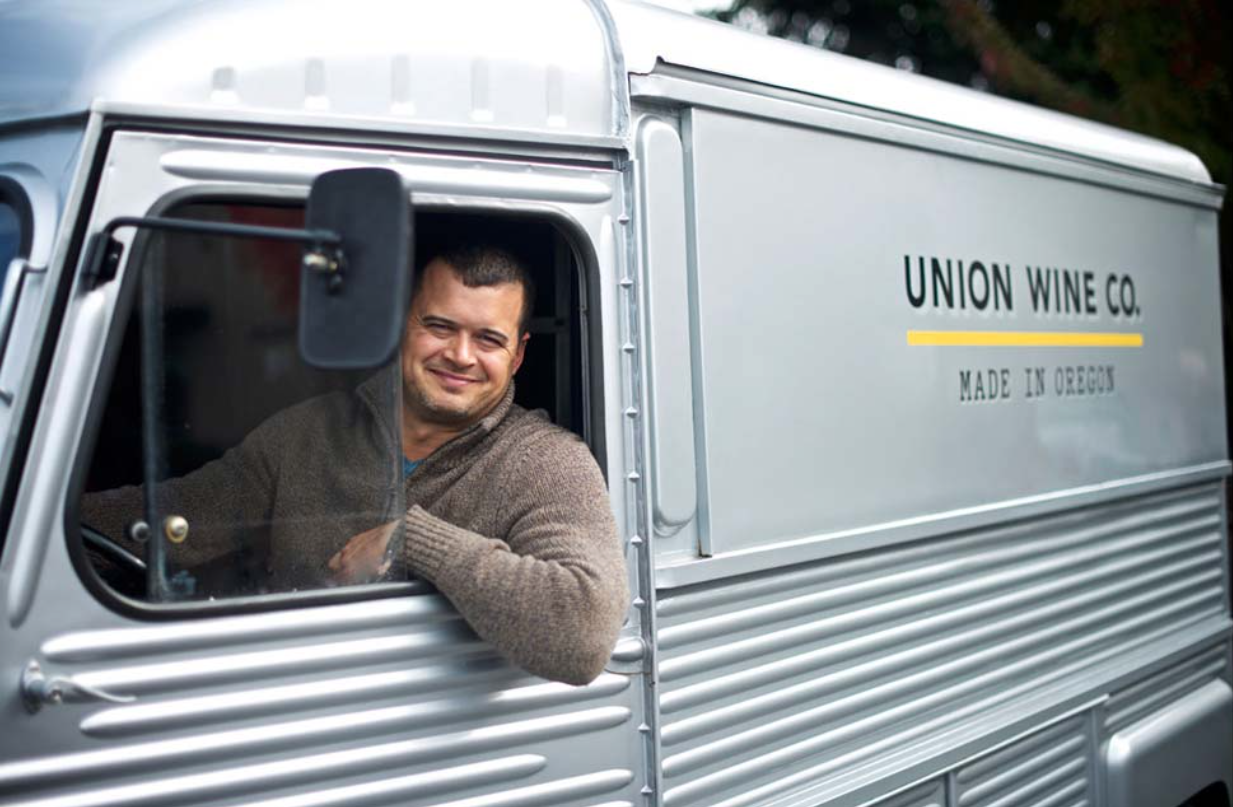
PDP – So to step to another side of the conversation, the idea of conservation in wine and some of the steps that we’ve already started taking towards being a better winery. Can you speak to that, and this year, and where we’re going?
RH – Yeah, to me at a simple level there is something that’s inherent in a company that is making Oregon products. I think we both support the perception of Oregon products, and our “Oregon-ness” helps to support our products. So, right off the bat, I think we start from the standpoint of ‘we’re thinking about conservation and we’re thinking about the environment.’ We’re thinking about the impacts that we have. I think that is probably true in lots of businesses, but it’s very true here in Oregon. If you’re doing business here it’s part and parcel of how you show up. For us as a company for a long time, I think I have been saying we’ve gotta “walk the walk” but we haven’t always wanted to talk about what we do, and how we approach it. I think it’s been both a learning experience, and me building confidence and being comfortable talking about the things we do. Not because we’re bragging about them, but more because we’re proud of how we show up in our community and in society. The last couple of years I think it’s also a product of a crazy growth curve. There have been some points where we are just trying to hold on to keep this whole thing from disintegrating as it’s kind of a rocket ship. I think we’re finally digesting a little bit of the growth. We have the ability to step back and ask, you know, what are the things that we should be talking about, and what are the things that we’re able to do? This year feels like a little bit of a culmination of where we can both celebrate some of the stuff that we’ve done as an organization year in year out, and finally talk about it. Then, I think in terms of the “Give Back Can” and our focus on some charitable giving, it’s a point where the success that we’ve had as a business, we’re finally able to be able to give back. I’m super proud of that. I think as an organization hopefully everyone here is super proud of us getting to a point where we have the financial resources to make that kind of commitment. You know, it’s a little bit of putting your money where your mouth. It is a little bit of walking the walk, and I’m excited that we’re finally at that point.
PDP – Absolutely. In the future having transparency is one of the best forms of currency you can have, right? When you can not only talk the talk and walk the walk but be open about that path you’re taking. I think that’s important and I’m happy and proud that we’re doing it.
RH – Yeah, and just from an organizational standpoint, trying to have internal initiatives to think about water reduction in the cellar and thinking about energy conservation. Simply being able to actually put some of those initiatives forward and begin to work on some multi-year projects is super exciting, and I think a great opportunity for us. There are always areas that we can get better at, and I think as a company we’re finally able to focus and look a little deeper into what we’re doing to see how we can improve what we’re doing always.
PDP – Always forward. Well, with that said. Coming to our wrap-up here. If you could close us out, speaking of always forward, Union Wine Company, but more importantly Ryan Harms. What are you looking forward to 2021-2022 to 2030? Close us out here with a little bit of a “blue skies” as we call it. What are you looking forward to this coming future?
RH – Blue skies as it’s raining out right now, right? Well, we need the rain. Yeah, so I mean, man, 2021 has already been a year that we didn’t entirely expect, in all good ways. We just closed on a vineyard purchase out in Sheridan which is totally exciting. We didn’t enter the year thinking that we’d be acquiring vineyard ground. Back to the sustainability side of our business, taking more of a direct hand in our farming. Being able to think from a cultural standpoint about how we’re approaching our farming, what is important to us—becoming more integrated in that way is an exciting opportunity and growth. Now that we’ve gone down this path, we will continue to be looking to acquire more vineyard ground and become bigger growers at the end of the day. Which hasn’t historically been how our business is structured, so that’s totally exciting. I continue to see great opportunities for our canned wine products and, you know, continued growth in that regard. Some of our other projects are a lot of fun. Amity vineyards right now is in development of a couple acres that have just been replanted, and we have about 10 more acres that are going to be planted next spring that’s entirely new ground. There’s a lot of energy and excitement around that project. I see good things ahead for several of our brands. Then, here at the winery, we’re getting ready to break ground on a new crush pad, hopefully, any day now. Kind of continued fun investments here, things that will make us more efficient and be able to continue to help shepherd our growth going forward. I don’t know yet about 2030, I haven’t gotten there yet. I think in terms of 2021-2022 I can see some really good things on the horizon.
